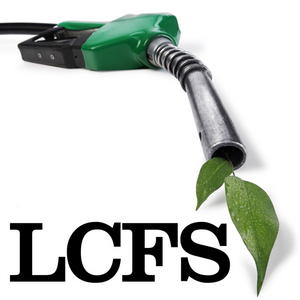RFA calls CARB's ILUC analysis out of date

April 10, 2014
BY Renewable Fuels Association
The Renewable Fuels Association has submitted comments to the California Air Resources Board pertinent to CARB’s draft indirect land use change analysis.
Geoff Cooper, RFA’s senior vice president, notes in his submission that RFA is greatly concerned by many aspects of the draft.
Cooper writes, “….several of the assumptions and methodological approaches chosen for CARB’s draft analysis run counter to the recommendations of the Expert Work Group (EWG). In particular, the values selected by CARB for key GTAP elasticities are in conflict with values recommended by EWG and well-known agricultural economists. More generally, CARB’s draft analysis lacks sufficient justification for certain judgment calls made by staff with regard to important model parameters.
Advertisement
“… the results of CARB’s draft analysis are in conflict with the results of recent independent ILUC studies. As described in a recent letter to CARB Chair Mary Nichols from 14 scientists and researchers (including CARB-appointed Expert Work Group members), the corn ethanol ILUC results from CARB’s draft analysis are significantly higher than estimates from recent peer-reviewed scientific analyses…. We believe CARB should explain and justify the divergence of its draft results with estimates from other recent studies.”
RFA’s comments contain thorough technical analysis and recommendations related to key modeling parameters in CARB’s analysis, such as crop yield elasticities and emissions factors, which would help CARB bring the current draft up to speed with current ILUC science.
Advertisement
Price yield elasticity is perhaps the single more important factor for CARB to correct in its draft. Not only does CARB ignore the recommendations of its own expert working group, its range “is inconsistent with recently estimated long-run elasticity values from the literature, confuses short-term versus long-term responses, and ignores the effect of double-cropping. Additionally, CARB appears to misrepresent the results from some price-yield elasticity studies.”
RFA believes “a range of 0.14-0.53 is scientifically justified, properly recognizes that the price-yield effect occurs primarily over the medium or long term, and appropriately incorporates the effect of double-cropping.”
Read the RFA Comment Letter in full here.
Related Stories
President Trump on July 4 signed the “One Big Beautiful Bill Act.” The legislation extends and updates the 45Z credit and revives a tax credit benefiting small biodiesel producers but repeals several other bioenergy-related tax incentives.
CARB on June 27 announced amendments to the state’s LCFS regulations will take effect beginning on July 1. The amended regulations were approved by the agency in November 2024, but implementation was delayed due to regulatory clarity issues.
SAF Magazine and the Commercial Aviation Alternative Fuels Initiative announced the preliminary agenda for the North American SAF Conference and Expo, being held Sept. 22-24 at the Minneapolis Convention Center in Minneapolis, Minnesota.
Saipem has been awarded an EPC contract by Enilive for the expansion of the company’s biorefinery in Porto Marghera, near Venice. The project will boost total nameplate capacity and enable the production of SAF.
Global digital shipbuilder Incat Crowther announced on June 11 the company has been commissioned by Los Angeles operator Catalina Express to design a new low-emission, renewable diesel-powered passenger ferry.
Upcoming Events










